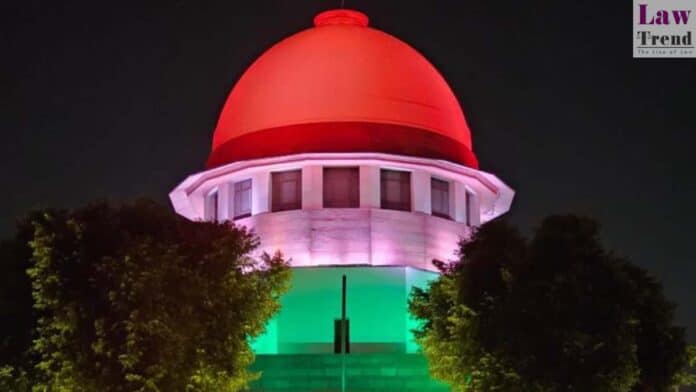The Supreme Court is scheduled to commence hearing on December 5 to examine the constitutional validity of section 6A of the Citizenship Act relating to illegal immigrants in Assam.
Section 6A in the Citizenship Act was inserted as a special provision to deal with the citizenship of people covered by the Assam Accord.
The provision provides that those who have come to Assam on or after January 1, 1966 but before March 25, 1971 from specified territories, including Bangladesh, as per the Citizenship Act amended in 1985, and since then are residents of Assam must register themselves under section 18 for citizenship.
As a result, the provision fixes March 25, 1971 as the cut-off date for granting citizenship to Bangladeshi migrants in Assam.
As per the cause list uploaded on the apex court website, a five-judge constitution bench comprising Chief Justice D Y Chandrachud, Justices Surya Kant, M M Sundresh, J B Pardiwala and Manoj Misra would take up the matter for hearing on Tuesday.
While hearing the matter in September, the apex court had said the title of the proceeding shall be, “In Re: Section 6A of the Citizenship Act, 1955.”
“During the course of the hearing, it has been agreed that the contesting parties shall consist of (i) those who are challenging the constitutional validity of section 6A of the Citizenship Act 1955 on the one hand; and (ii) those including the Union of India and the State of Assam who are supporting the validity of the provision,” the bench had said in its September 20 order.
Several petitions are pending on the issue in the apex court.
Under the Assam Accord signed by the All Assam Students Union, Assam government and the Government of India on August 15, 1985 to detect and deport the foreigners, section 6A was inserted to the Citizenship Act to grant citizenship to people who have migrated to Assam.
A Guwahati-based NGO challenged section 6A in 2012, terming it arbitrary, discriminatory and unconstitutional, claiming it provides different dates for regularising illegal migrants in Assam.
A two-judge bench had referred the matter to the Constitution bench in 2014.




